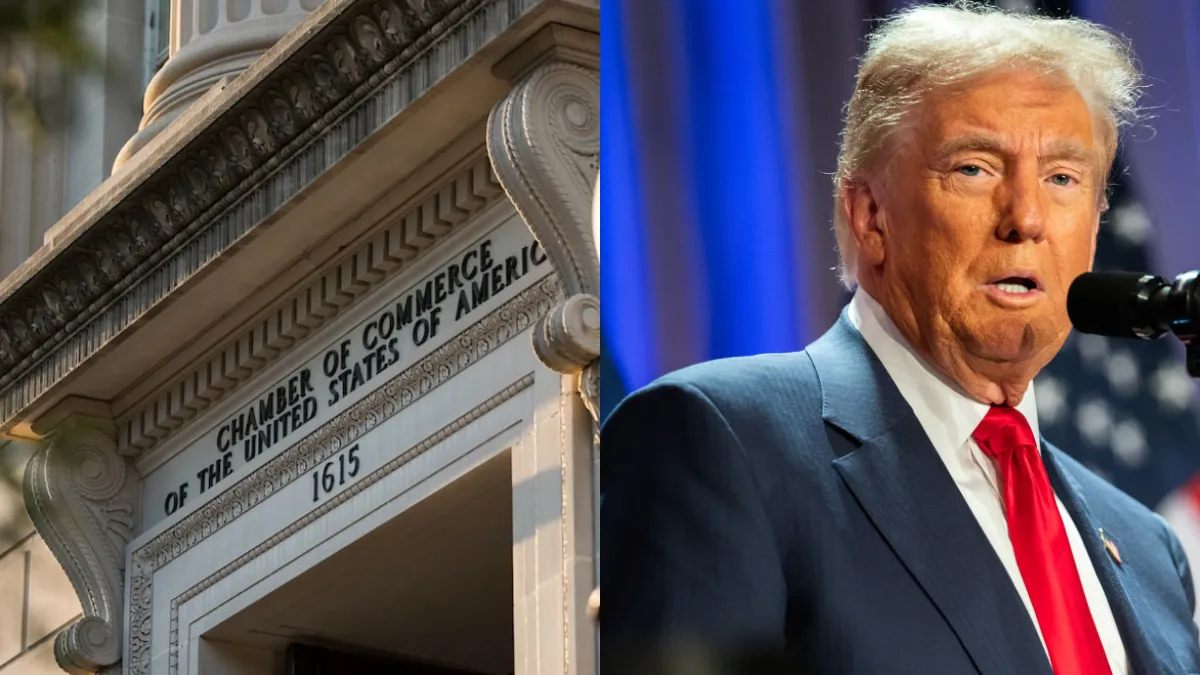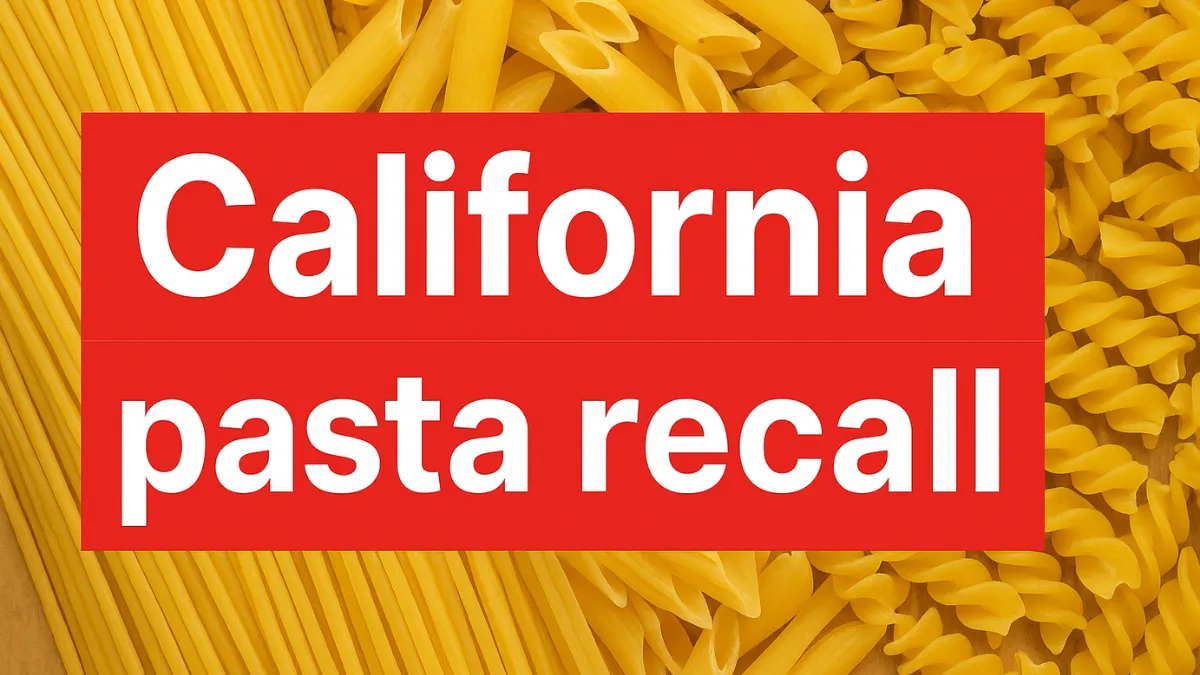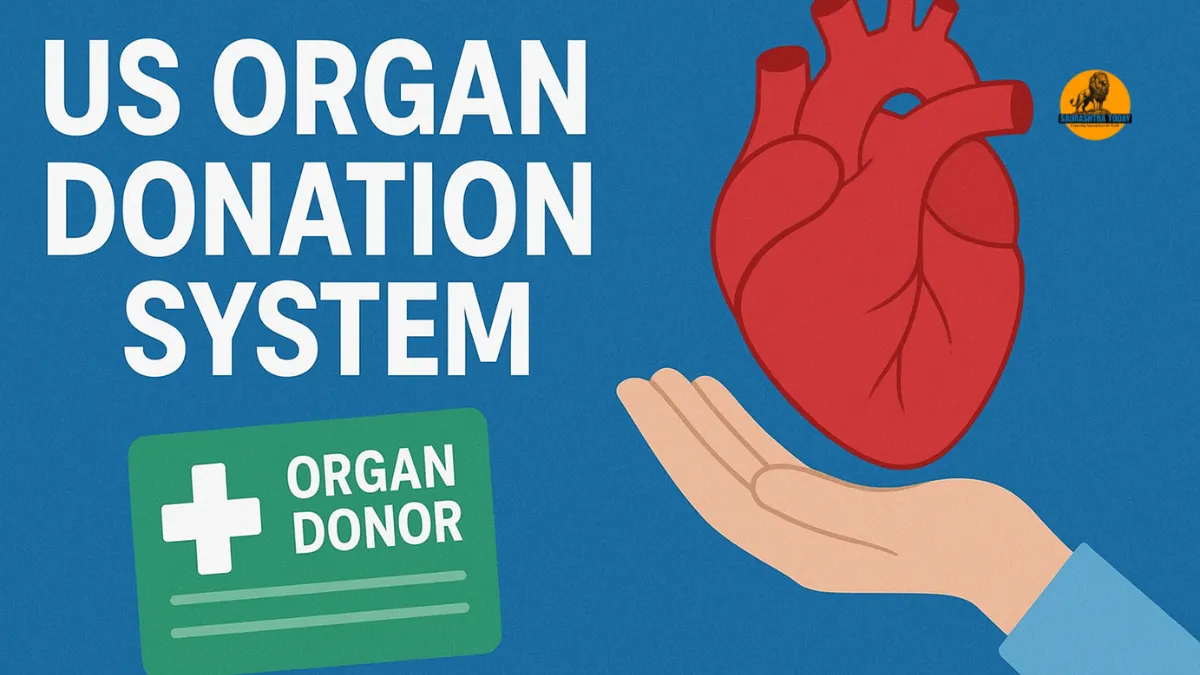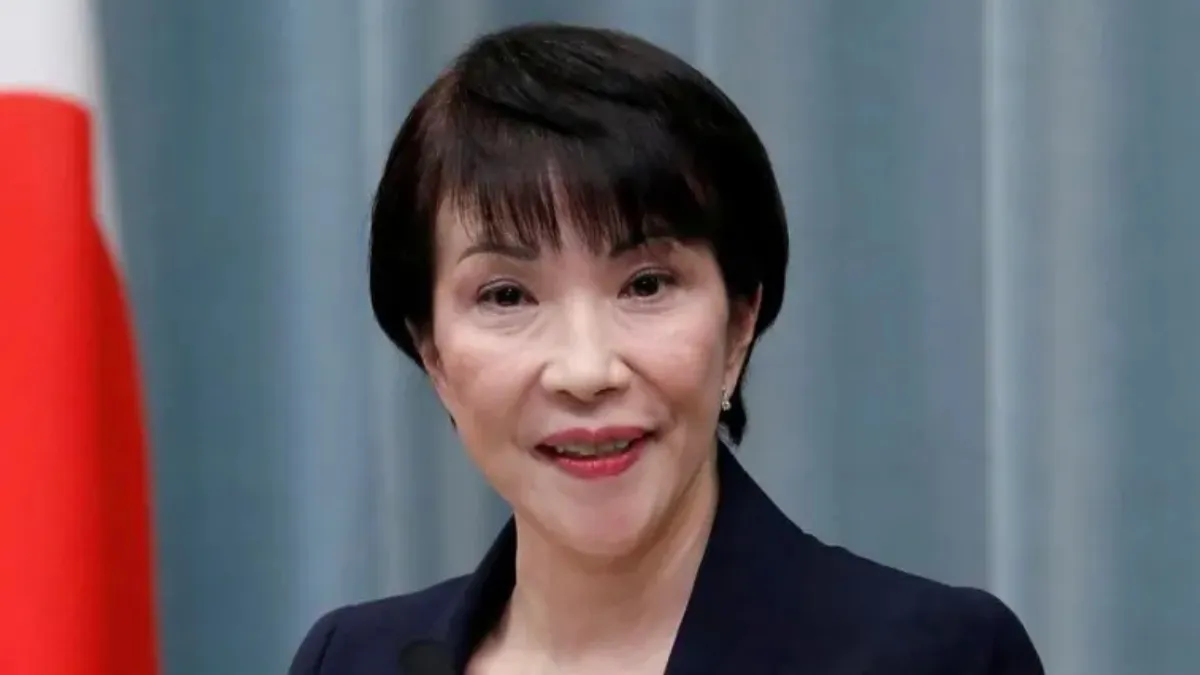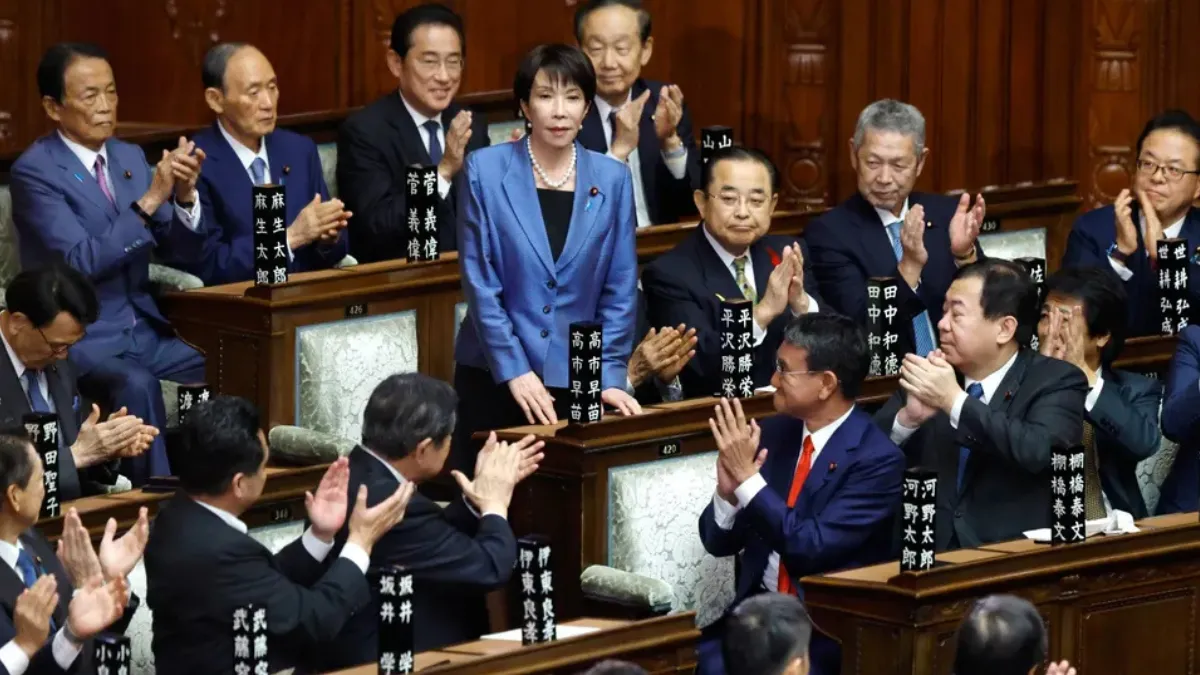Sues the Trump Administration: In a significant legal move, the United States’ largest business organization, the US Chamber of Commerce, has filed a lawsuit against the Trump administration. The legal action challenges the recently imposed H-1B visa application fees, which the government has set at a staggering $100,000. According to the Chamber, this fee is “illegal” and could cause severe financial strain on American companies.
The lawsuit, filed in a Washington D.C. district court, is being closely watched by businesses and policymakers across the country, highlighting the growing tensions over immigration and employment policies.
District Court Petition Highlights Potential Harm to U.S. Companies
The petition filed in the district court emphasizes that if the new H-1B fee is implemented, American companies may face two unfavorable options: either significantly increase labor costs or reduce the number of skilled foreign employees, many of whom have no readily available domestic alternatives.
The Chamber criticized the Trump administration’s September 19 executive order, calling it “clearly unlawful” and “beneficial to America’s economic competitors.” The petition further stated:
“This announcement is not only a misleading policy; it is explicitly illegal. The president has substantial authority over non-citizens entering the United States, but this power is limited by law and cannot override statutes passed directly by Congress.”
This lawsuit underscores the legal principle that even executive authority cannot bypass established immigration laws enacted by Congress.
Impact on the American Economy and Workforce
According to Neil Bradley, Executive Vice President of the US Chamber of Commerce, such a steep H-1B visa fee would make it nearly impossible for American companies to hire global talent at a time when the U.S. economy needs more workers.
The Chamber represents nearly 300,000 direct members and indirectly advocates for the interests of over 3 million companies and professional organizations in the United States. Bradley emphasized that this fee threatens the ability of U.S. businesses to compete internationally, particularly in sectors where specialized skills are scarce domestically.
Criticism of Trump’s H-1B Policy: Sues the Trump Administration
This lawsuit marks the second major legal challenge against the Trump administration’s new H-1B regulations. Earlier, on October 3, several unions, educational experts, and religious institutions filed their own lawsuits opposing the policy. They argued that the executive order was fraught with errors and overlooked the benefits of the H-1B program for the U.S. economy.
The September executive order, signed by President Trump, aimed to prioritize employment opportunities for U.S. citizens. Commerce Secretary Howard Lutnick also supported the policy, suggesting that higher fees would discourage companies from hiring foreign workers.
However, critics argue that the policy could undermine the competitiveness of American businesses in global markets, particularly in technology, research, and specialized industries that rely heavily on international talent.
Why the Lawsuit Matters: Legal and Economic Perspectives
The lawsuit to Sue the Trump administration is not just a corporate grievance; it reflects broader concerns about immigration, labor, and economic growth in the United States. By challenging the legality of the H-1B fee, the US Chamber of Commerce is asserting that:
- Congressional authority cannot be overridden by executive action.
- Excessive fees will discourage foreign talent from joining U.S. companies.
- Companies may face higher operational costs or workforce reductions.
- U.S. global competitiveness could be compromised if skilled workers are deterred from entering the country.
Legal experts note that if the court sides with the Chamber, it could set a precedent limiting the executive branch’s authority to impose unilateral immigration-related fees.
Global Talent and Business Competitiveness at Stake
Many industries in the U.S., from technology to healthcare, rely on H-1B visa holders for critical roles. The new $100,000 fee could significantly restrict access to international talent, potentially causing companies to relocate operations abroad or slow innovation in key sectors.
Bradley pointed out that “this policy threatens the ability of American companies to attract the skilled workforce they need to grow and compete globally,” highlighting the direct economic consequences of the Trump administration’s executive order.
Also read: Trump announces 100 tariff on China Sparks $18 Billion Crypto Market Crash
Reactions from Business and Legal Communities
The lawsuit has garnered attention from various business and legal communities in both the U.S. and U.K., as global companies with operations in the United States closely monitor the outcome. Analysts suggest that if the court finds the H-1B fee illegal, it could reverse the administration’s policy and restore confidence among international talent considering U.S. employment opportunities.
Moreover, the case raises questions about the balance of power between the executive branch and Congress in shaping immigration policy, an issue that has been contentious under the Trump administration.
Also read: No Kings Fox Protest: From Washington to London, Global Movement Against Donald Trump
Conclusion: Implications of the Chamber’s Legal Action
The decision by the US Chamber of Commerce to Sue the Trump administration is a pivotal moment in U.S. immigration policy. It reflects the growing frustration among businesses facing regulatory challenges that threaten their workforce, innovation, and global competitiveness.
With the court case underway, both domestic and international stakeholders are closely watching the outcome. A ruling in favor of the Chamber could prevent the implementation of prohibitive H-1B visa fees, safeguarding the flow of skilled talent into the U.S. and supporting economic growth. Conversely, a ruling in favor of the administration could reshape employment and immigration dynamics, potentially limiting opportunities for foreign professionals and affecting companies across multiple sectors.
As the legal battle unfolds, the case underscores the critical intersection of law, business, and immigration policy in shaping the future of the American workforce.
